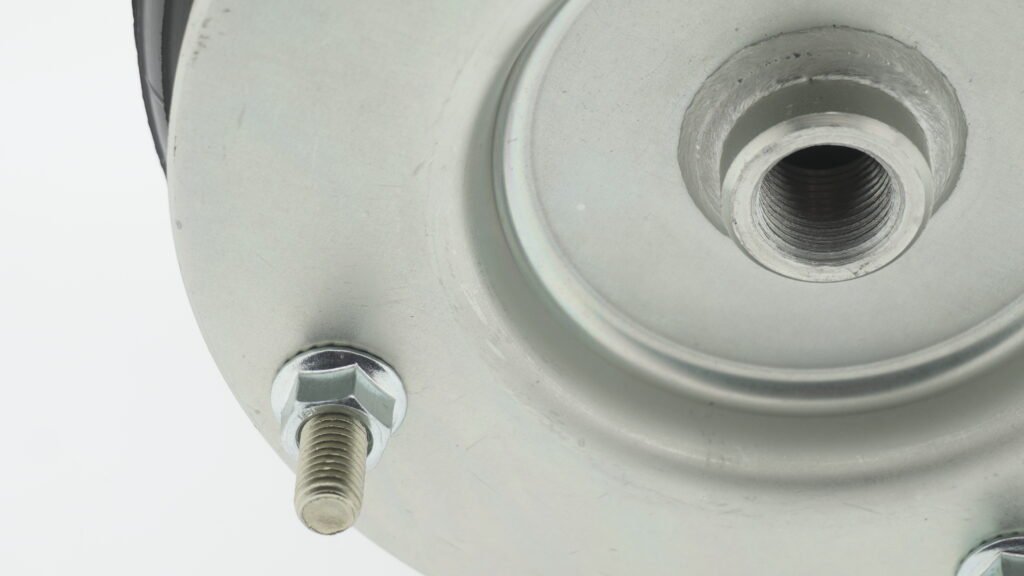
In a world increasingly focused on sustainability and environmental responsibility, reducing the carbon footprint in heavy machinery has become a pivotal concern for the industry. We recognize that effective solutions are needed to meet stringent emission regulations while maintaining efficiency and productivity. One such solution lies in the use of air bellows, an essential technology that can transform the way heavy machinery operates, optimizing both performance and environmental impact.
Efficiency Through Adaptive Load Management
The fundamental advantage of air bellows is their ability to provide adaptive load management in heavy machinery. By dynamically adjusting to varying weights and road conditions, air bellows enhance vehicle stability and reduce the stress on other components. This ultimately results in less energy consumption, translating directly into a reduced carbon footprint.
Heavy machinery, whether used in mining, agriculture, or construction, faces fluctuating loads that impact fuel efficiency. By employing air bellows, we ensure that machines can carry loads more effectively, with better weight distribution that minimizes fuel wastage. Efficient load management not only reduces greenhouse gas emissions but also prolongs the lifespan of the machinery, which aligns with sustainability goals.
“The great challenge of our age is to make our technologies not just powerful, but sustainable.” – Elon Musk
Enhanced Suspension for Reduced Fuel Consumption
Air bellows significantly improve the suspension system of heavy-duty vehicles, reducing vibrations and energy losses. By providing a smoother ride, air bellows cut down on the resistance that arises from rough terrains. This smoother operation decreases the energy required for propulsion, which is a direct contributor to lower carbon emissions.
In heavy machinery, where engines are often oversized to compensate for load variability, air bellows allow for better control. This means that engines can run more efficiently, as the smoother suspension reduces the frequency of load spikes that demand extra power. The outcome? Less fuel burned and fewer emissions released into the atmosphere.
Lower Maintenance Requirements Mean Less Waste
Maintenance is another area where air bellows provide a significant advantage. Heavy machinery generally has extensive maintenance requirements, and frequent part replacements contribute to a larger carbon footprint due to the production and disposal of parts. Air bellows, with their durable and adaptable nature, reduce wear and tear on machinery components.
By minimizing component failure and extending maintenance intervals, air bellows help in reducing the environmental impact associated with part manufacturing and disposal. This advantage makes them a critical component in achieving sustainability in heavy machinery.
The Role of Air Bellows in Hybrid and Electric Heavy Machinery
As the industry moves towards hybrid and electric machinery, air bellows are uniquely positioned to enhance these technologies. For electric heavy machinery, reducing weight and improving energy efficiency are key to maximizing battery life and operational range. The adaptive nature of air bellows helps in optimizing these parameters, making them an ideal fit for next-generation heavy equipment.
With air bellows, hybrid systems benefit from better load management, which leads to more effective utilization of both electric and combustion power sources. The smoother suspension system also means that energy recuperation systems can work more efficiently, capturing more energy during braking and reducing the overall power needed to operate the machinery.
“Sustainability is not a choice; it’s a necessity for the future of our planet.” – Jane Goodall
Reducing Vibration-Related Energy Loss
Another critical aspect where air bellows shine is in reducing vibration-related energy loss. Heavy machinery often operates in challenging environments where vibrations can lead to significant energy dissipation. By dampening these vibrations, air bellows ensure that the energy generated by the machine is used more effectively for productive tasks rather than being lost as heat or unnecessary movement.
The use of air bellows in this context directly contributes to improving energy efficiency, which is essential for reducing the overall carbon footprint of heavy-duty vehicles. This efficiency is especially important in sectors like mining, where machines often operate continuously, and even small gains in efficiency can lead to substantial environmental benefits.
Air Bellows and Their Contribution to Emission Regulations
Adhering to strict emission regulations is a significant driver for the adoption of air bellows in heavy machinery. Regulatory bodies across the globe are imposing stringent limits on permissible emission levels, and manufacturers are under pressure to find effective ways to comply without compromising on performance. Air bellows offer a viable solution by reducing energy consumption, thereby minimizing the emissions produced.
By optimizing load handling and improving suspension systems, air bellows help machinery meet or exceed emission standards. This not only ensures compliance but also adds value for customers who are increasingly looking for environmentally responsible solutions in their operations.
Benefits for Different Industries
- Construction: In the construction industry, where machines operate on varied terrains, air bellows contribute to better energy management, leading to reduced emissions and lower fuel costs.
- Agriculture: For agricultural machinery, air bellows ensure that tractors and harvesters operate with minimal soil compaction, which also aligns with sustainable farming practices.
- Mining: In mining, where the carbon footprint is a critical concern, air bellows improve both the efficiency and safety of the operation, ensuring a reduction in emissions while maintaining high productivity.
A Step Towards Sustainable Heavy Machinery
In conclusion, air bellows represent a significant advancement in the quest to reduce carbon footprints in heavy machinery. Through enhanced load management, better suspension, lower maintenance needs, and improved efficiency in hybrid and electric systems, air bellows are helping to create a more sustainable future for industries that rely heavily on large-scale machinery.
As we continue to innovate and improve our solutions, our commitment remains steadfast: to provide technologies that not only meet the demands of today but also pave the way for a cleaner, more sustainable tomorrow.
